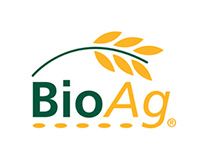
Agronomy
Topic
Soil, leaf and tissue testing
BioAg nutritional programs can be developed for a wide range of dryland and irrigated agricultural and horticultural enterprises. Soil, leaf and tissue testing are an important part of developing a program for your farm because they provide real data about your paddock or block.
With this data we are able to design a nutrient program delivering an efficient and balanced source of nutrients to plants and livestock that will:
- Address key soil properties including:
- Correction of detected mineral deficiencies
- Managing detected toxicities or nutrient surpluses and the potential effects of imbalance
- Increase of microbial mass and diversity in the soil
- Supplement crops and pasture with foliar biostimulants and/or nutrients:
- To meet peak periods of nutrient demand
- Counter any mineral deficiencies in the soil
- Stimulate soil and plant biological and physiological processes to improve uptake and transport of nutrients from soils and within the crop during important growth or reproductive stages
Interpreting results and preparing a program
Each BioAg Program is focused on building balanced soils, improving soils year on year with the objective of delivering high performing sustainable soils and eliminating overuse of fertilisers.
Every program starts with the soil test results.
BioAg Area Managers are experts at interpreting soil test results and preparing a program that fits in with your yield and quality goals for the block or paddock.
Our Area Manager will discuss factors such as planned crops or grazing, any on-farm observations related to crop or stock health or vigour, your budget and objectives.
Each crop and grazing plan will consume differing amounts of nutrients. The planned needs are incorporated into the program ensuring that the nutrients are available to deliver your yield objectives for the crop.
BioAg programs for better soil are backed up by grower success stories, years of experience and significant numbers of independent trials.
During a season growers may observe issues, or a decision may be made to check a crop given what is known about the soil or crop needs. Crop issues whether it be related to stress, soil or seasonal conditions may result in poor nutrient levels (lack of soil nutrients or poor uptake); or toxicities in a crop. A very effective method in uncovering issues and implementing solutions is to perform a leaf tissue test or a petiole test.
Based on the in-crop or field observations and the results of leaf tissue or petiole tests your program will be fine-tuned to address or mitigate the issues impacting your crop or pasture.
The issues uncovered during the season will also be considered when developing the upfront needs for the next crop or seasonal application.
Soil tests
When you arrange your soil test through BioAg, the soil samples are tested at Southern Cross University’s Environmental Analysis Laboratory (EAL) or at APAL in Adelaide.
When initiating a soil test consideration is given to the parameters to tested. When using or contemplating the use of an RPR or natural P fertiliser we recommend the inclusion of PB and Bray 2 tests as well as Olsen and or Colwell P tests.
When we have the results of your soil test we consider a number of factors when interpreting the nutrient data, such as:
- How tightly an element is bound in the soil
- Where, when and how much of a soluble fertiliser application is likely to be bound up
- How much of an element may already be in reserve and has the potential to be made available to the plant
- Changes in the availability of elements over time given plans to address one or more of pH and soil organic carbon
- The potential risk of “lock-up” with “antagonistic” elements.
Leaf and tissue testing
We use certified laboratories for leaf sample testing.
We test leaf tissue for the following reasons:
- To identify or diagnose a nutrient deficiency
- To monitor and manage the nutritional value and quality of the grass/crop grown (essentially using it as a tool to identify a ‘hidden hunger’)
- As a cross reference tool with soil test data to provide more confidence in data interpretation
- As a verification tool to check if a soil or foliar application is working.
Petiole testing
We use petiole (leaf stalk) analysis to assess the nutrient content of vines at a selected time in the growth of the plant.
The concentration of nutrients in a vine varies from year to year. The uptake of nutrients is affected by seasonal conditions and other factors.
When used as a way of monitoring nutrients, petiole testing can guide fertiliser application decisions in the general maintenance of a vineyard. It is also a useful tool to help diagnose the cause of specific problems. A grower may use petiole testing to confirm a diagnosis made by observing visible deficiencies or toxicities.
If we recommend a petiole test, your BioAg contact will do the sampling and arrange for the sample to be tested.
For more information about petiole testing, download the Petiole Analysis factsheet from the Australian Wine Research Institute (AWRI) website.

Recent Comments